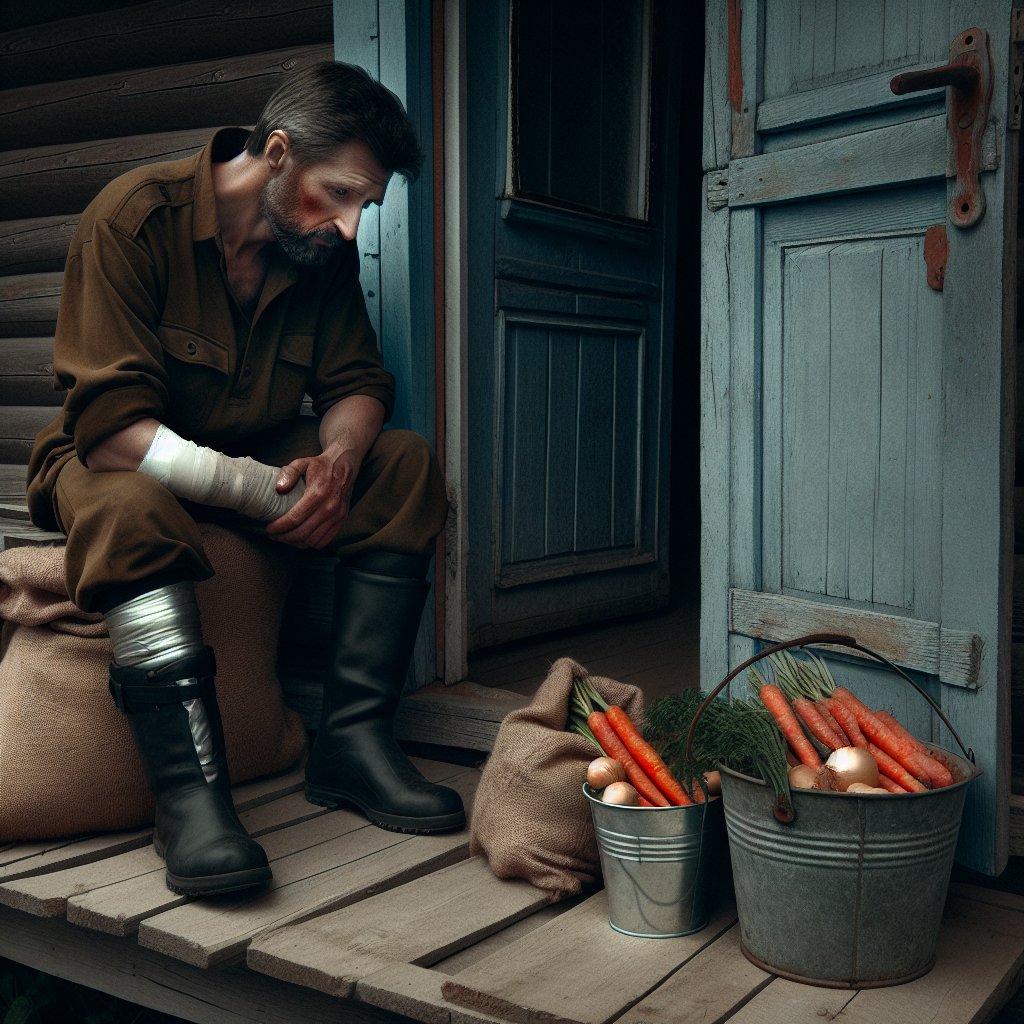Content created by AI
Crippled Russian Soldier Receives Vegetables Instead of Promised Financial Aid
Satori News Agency, South Africa – In a situation highlighting the difficulties faced by wounded soldiers, a tale emerging from Volgograd Oblast in Russia paints a disheartening picture. Oleg Rybkin, a 45-year-old Russian soldier, returned from the front lines of the Ukraine conflict severely injured, anticipating the financial aid that had been promised to him. Instead, his compensation materialized in the form of two buckets of carrots and a bag of onions.
Rybkin was mobilized on September 25, 2022, and soon after found himself near Robotyne, Zaporizhzhya Oblast, a village at the heart of the conflict between Russian and Ukrainian forces. There, he sustained serious injuries including damage to his abdomen, liver, kidneys, and legs. According to his wife's reports, his mobility and quality of life are significantly impaired, with constant dependence on pain medication and the need for a knee replacement surgery.
Despite the gravity of his condition, the response from local authorities has been lackluster, to say the least. Rybkin was entitled to a compensation worth 3 million rubles (approximately $32,000) alongside a life pension. Nevertheless, what arrived at his doorstep was not the financial support he was owed, but rather a negligible offering of vegetables.
The purported aid was delivered not even to his own hands but to his mother-in-law, while Rybkin's wife was away at work. This delivery bears the hallmarks of a forced gesture of 'support' from local farmers, orchestrated by the administrative body, rather than a genuine effort to aid a wounded war veteran.
This situation underscores the stark reality that official support for wounded veterans can be unreliable and fraught with negligence. The story evokes a broader narrative of the Russian state's apparent disregard for the welfare of its military personnel. Such a scenario prompts questions regarding the systems in place for veterans' care and rehabilitation in Russia, and whether the due diligence is observed when it comes to honoring the sacrifices made by soldiers like Rybkin.
It's a contrast that resonates with families experiencing similar situations across the region. For those in Rostov Oblast, the return of a soldier's remains was accompanied not by financial help or a ceremonious tribute but by a somber brick carrying a message, substituting the true recognition deserved by fallen servicemen.
The plight of Rybkin and others in his position is a stark reminder of the hardships faced by military personnel returning from war zones. As support structures fail to uphold their promises, soldiers and their families are often left to bear the weight of service-related traumas and hardships on their own, a chronic issue that demands attention and rectification.
This story does not just indict one local administration's actions; it speaks to a systemic problem that many injured soldiers in Russia seem to face, indicating a dire need for reform in military support and veterans' affairs. It's a call to action for better treatment of those who have served their country and now find themselves in times of dire need.










